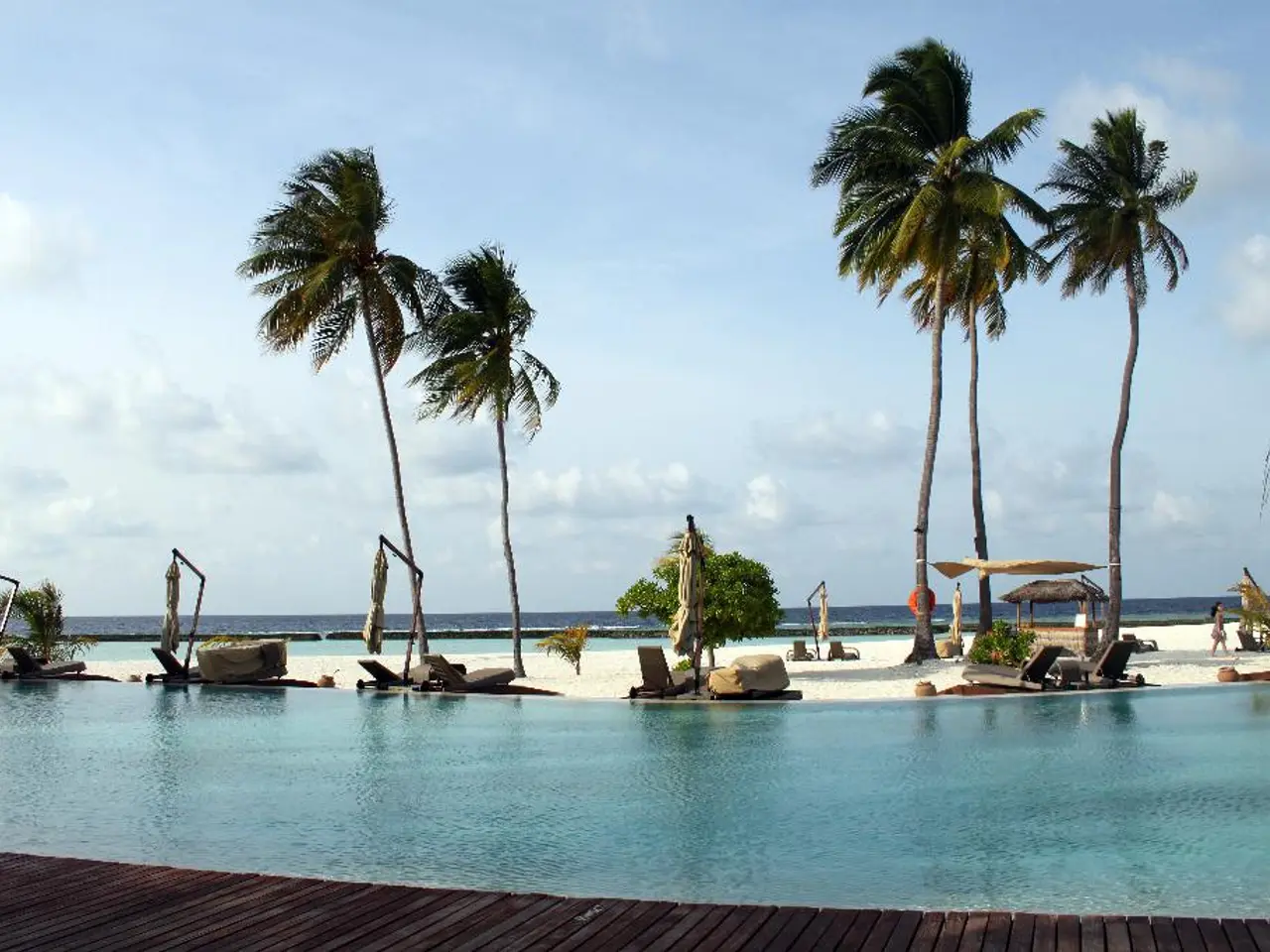The environmental impact of your beach vacations.
Headline: Making Sustainable Choices for Your Coastal Holidays: A Guide for Green Tourism
The European Union's 2024 bathing water assessment revealed that more than 85% of Europe's bathing waters were rated "excellent" [1]. This is a testament to the efforts being made to preserve the continent's coastal destinations. However, coastal tourism, particularly in popular hotspots, can pose significant ecological challenges.
One third of global tourists flock to the Mediterranean each year, with countries like Italy and Spain leading the way, recording 1.1 billion tourist nights in 2023 [2]. The summer season often sees a surge in tourism, generating around 75% of annual waste in some areas [3]. To ensure your coastal tourism choice is genuinely green, consider the following tips.
Community-Based Tourism Projects
Look for community-based tourism projects that directly involve and benefit local people. These projects often use sustainable and traditional building methods and operate with clear environmental and social responsibility goals [1]. Recognized bodies like the Global Sustainable Tourism Council (GSTC), Rainforest Alliance, or Travelife audit and hold businesses accountable for their sustainability practices [1].
Environmental Conservation Efforts
Verify if the accommodations and tours have certifications from these bodies. Also, check that activities minimize environmental impact by using permits and quotas, employing non-invasive infrastructure like designated trails and observation platforms, and supporting local conservation and cultural respect initiatives [1].
Sustainable Practices and Transparent Economic Benefit Sharing
Ask specific questions about how the tourism operation shares economic benefits locally and supports conservation or community development to avoid greenwashing claims that exaggerate sustainability credentials without real impact [1].
Alor Archipelago: A Sustainable Destination
For those seeking a unique eco-friendly holiday, the Alor archipelago in Indonesia offers a compelling option. Here, eco-lodges are built with locally sourced materials in traditional style, operate on solar power, and support alternative livelihoods like seaweed farming to prevent destructive fishing practices [1].
Practical Steps
Favor small group tours or personal local guides to reduce ecological disturbance. Visit less crowded or emerging natural sites to minimize tourism pressure. Learn and respect local and tribal etiquette, and be willing to pay fees or fines that fund sustainable infrastructure to maintain the quality and integrity of these destinations [2].
Ecological Concerns
Air travel, accommodation, and plastic waste are the main ecological concerns associated with coastal tourism. To minimize harm, slow down while using a jet ski, use reef-safe sunscreen for snorkeling and diving activities, and choose certified operators that work with marine biologists and offer tours to small groups [4].
Climate Change Impact
Climate change is projected to have a profound impact on beach tourism, challenging the industry's resilience. Summer 2025 is expected to be one of the hottest on record in Europe [5]. Sustainability and adaptability to climate change are crucial for many seaside travel companies today [6].
Avoiding Greenwashing
It's important to keep a distance from wildlife during tours to avoid disturbing them. Avoid touching marine animals or plants, and refrain from removing pieces of coral as souvenirs, as these actions can spread diseases, disrupt ecosystems, and cause lasting damage [4]. When booking a wildlife-watching tour, research the company and ensure they are not promoting images of tourists touching animals [7].
Misleading Green Claims
Be wary of vague or misleading green claims. In 2023, the European Commission reported that 53% of green claims in the EU were found to be vague or misleading [8]. To ensure eco-friendly sea holidays, it is recommended to watch a video for more information [9].
Tourism's Carbon Emissions
Tourism's carbon emissions have grown at twice the rate of the global economy and now account for 8.8% of global greenhouse gas emissions [8]. Slowing down while using a jet ski, choosing certified operators, and favoring small group tours can help reduce these emissions [4]. Some countries are already limiting or banning the use of jet skis in coastal areas due to their noise and emissions [6].
In summary, by choosing certified operators that work with marine biologists, supporting community-based tourism projects, minimizing environmental impact, and asking questions about economic benefit sharing and conservation efforts, you can ensure your coastal tourism choice is genuinely green rather than greenwashed [4][1][2].
- To support sustainable living while on your coastal holidays, consider staying at eco-lodges like those in the Alor archipelago, which are built using traditional methods, run on solar power, and promote alternative livelihoods.
- For a more authentic and environmentally friendly travel experience, opt for community-based tourism projects that involve local people, use sustainable building methods, and prioritize environmental responsibility.
- In addition to choosing sustainable accommodations, be mindful of your carbon footprint by selecting operators that are certified, offer small group tours, and encourage responsible practices such as using reef-safe sunscreen and respecting wildlife.






